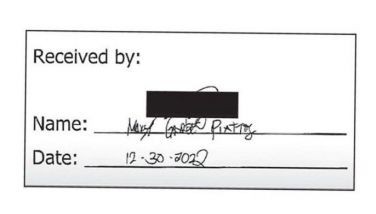DOJ indicts Julian Ongpin for drug possession

MANILA, Philippines (Updated 4:42 p.m.) — The Department of Justice has formally indicted Julian Ongpin, the son of businessman and former Trade Secretary Bobby Ongpin, for possession of cocaine.
This comes weeks after late artist Bree Jonson was found unconscious in a hostel room in San Juan, La Union, in mid-September. She was later declared dead on arrival at a local hospital.
According to a case briefer sent to reporters by Justice Undersecretary Emmeline Aglipay-Villar, the case will be filed at a court in San Fernando, La Union.
Earlier, the DOJ issued a Hold Departure Order to prevent Ongpin from leaving the country after he was ordered released by the La Union Provincial Prosecutors’ Office.
Drugs found in hostel room
Jonson and Ongpin, her only companion at the time and the last to see her alive, tested positive for drug use, according to local police.
More than 12 grams of cocaine were also recovered from the room Ongpin shared with Jonson, police said, making the offense non-bailable.
READ: Jonson kin questions PNP 'red tape' in release of organs to NBI
The investigation into Jonson's death had seen delays in the autopsy of Jonson's remains as well as complications in the turnover of her organs to the National Bureau of Investigation.
Based on the autopsy conducted by the La Union police, Jonson died of asphyxia or loss of oxygen. Local police said she had ligature marks on her neck.
According to the Jonson family's legal counsel, a separate autopsy by the NBI found signs of struggle before Jonson's death. The family inssists that Jonson did not die of suicide, contrary to Ongpin's version of what happened.
Ongpin's early release despite the discovery of drugs in the La Union hostel room had also raised questions.
Police Brig. Gen. Emmanuel Peralta, regional director of Ilocos police, said that local police had no choice after the local prosecutor's office ruled that Ongpin's arrest "doesn't fall under any of the instances where a warrantless arrest is allowed."
Under the Rules of Court, Rule 113, Section 5, a warrantless arrest, also known as "citizen’s arrest," is lawful under three circumstances:
- When, in the presence of the policeman, the person to be arrested has committed, is actually committing, or is attempting to commit an offense or is "in flagrante delicto."
- When an offense has just been committed, and he has probable cause to believe, based on personal knowledge of facts or circumstances, that the person to be arrested has committed it or is in "hot pursuit."
- When the person to be arrested is a prisoner who has escaped from a penal establishment.
— Franco Luna with a report from Kristine Joy Patag
- Latest
- Trending





























